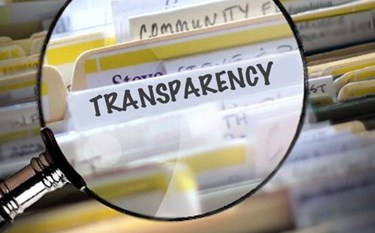Addressing A Lack Of Transparency In Green Claims
By Neil Coole – BSI Americas Director, Food & Retail

Consumer trust in the food and beverage industry is facing a confidence gap. A study conducted by The University of Minnesota in 2022 revealed that less than a quarter of American consumers trust the information provided about the origins and production processes of their food. This situation has been further exacerbated by concerns about greenwashing, whereby organizations mislead environmentally conscious consumers through some form of a bold statement, promise, or commitment toward being environmentally friendly, sustainably produced or carbon positive, without any objective evidence to substantiate their claims.
At the same time, there is growing consumer demand for transparency. According to research by Nielsen, 72% of shoppers find transparency important or extremely important, and consumers are 17% more likely to buy from brands that are transparent about their ingredients/supply chain. The rise in consumer awareness and demand for greater transparency has led to changes in regulations worldwide. In response to greenwashing in the food sector, as well as other industries, regulatory authorities are stepping up efforts to hold organizations accountable for their green claims.
The European Union, for instance, has proposed the Directive on Green Claims, expanding the power of existing consumer protection laws. If successfully enacted, these new criteria will equip regulatory authorities with enhanced capabilities to identify and combat unethical greenwashing practices. As a result, organizations will face a clear choice: either adopt recognized standards to provide verifiable evidence for their environmental claims or face legal repercussions, in addition to potential damage to their brand reputation and loss of consumer confidence.
Elsewhere, other laws and guidelines already exist to prevent companies from making false or misleading environmental claims. For instance, in the US, regulatory bodies such as the Federal Trade Commission (FTC) and the Environmental Protection Agency (EPA) have Green Guides, which were first issued in 1992 and are updated periodically, to help marketers avoid making unsubstantiated environmental claims that mislead consumers. Compliance with these types of regulations can be crucial to bridging the trust gap and ensuring consumers have accurate information about the products they purchase. The FTC is currently seeking public comment on proposed updates to the Green Guides to specifically target the rise in greenwashing.
The consequences for making misleading claims can be monetary, but also companies can take hits to their reputations as consumers demand more accountability. Last year, in the US, for example, two major retailers were each fined millions of dollars for claims related to products that were listed as being made from bamboo but were actually synthetic rayon. Elsewhere, in the UK, the Advertising Standards Authority ruled that a major global bank had “omitted material information and therefore was misleading” in a campaign aimed at touting their environmental initiatives.
While some organizations are adopting the practice of “greenhushing” by actively dialing down their communication efforts related to their impact on the environment, other organizations are moving ahead, using enhanced scrutiny and consumer expectation as an opportunity to grab larger shares of their market. Some are doing so through the adoption and certification of globally recognized standards, such as ISO 14001 for managing environmental risks and impacts and ISO 14064 for the quantification, reporting, and reduction of greenhouse gasses. These best practice frameworks provide the governance, structure, language, and organizational alignment as well as guidance for demonstrating and sharing progress on environmental and sustainability issues with the public. By aligning themselves with best practices in this way, organizations also have an opportunity to differentiate themselves in a highly competitive marketplace.
Companies that embrace positive change and adopt recognized standards have the opportunity to gain significant advantages. Firstly, they can gain consumer trust by providing transparent and verifiable evidence of their environmental claims. This can instill confidence in their products and reinforce their brand reputation. Secondly, these standards can act as a blueprint for organizations' future goals, priorities, and aspirations. By committing to measurable targets and embracing sustainability, organizations could be better positioned to adapt to evolving market demands and consumer expectations. Lastly, organizations that proactively address environmental concerns contribute to the larger goal of protecting our planet and accelerating progress toward a sustainable future.
One of the best examples of a company embracing environmental initiatives is Patagonia, the outdoor clothing and goods brand. Since their founding in the early-1970s, they have been focused on sustainability, and in a move that gained a tremendous amount of attention late last year, the owners gave their shares in the company to a Trust and nonprofit organization for the benefit of environmental initiatives.
Greenwashing poses a substantial challenge to consumer trust in the food and beverage industry. However, with the introduction of new regulations and the proactive measures taken by organizations, and consumers as they continue to demand more environmentally friendly and sustainable products and services, there is hope for positive change.
Organizations that prioritize transparency and take steps to substantiate their environmental claims can have a positive impact on the future of the planet, while compliance with existing laws and guidelines can help build trust with consumers. By embracing the benefits of positive change and committing to sustainable practices, organizations can not only safeguard their position in the market but also contribute to a more environmentally conscious and responsible industry.
Consumers are driving this change and can continue to put pressure on the marketplace by being aware of legitimate marks of trust that offer independently substantiated objective evidence that validates and verifies an organization’s claim or promise. As W. Edwards Deming wisely said, "It is not necessary to change. Survival is not mandatory." But the survival of our planet is.
